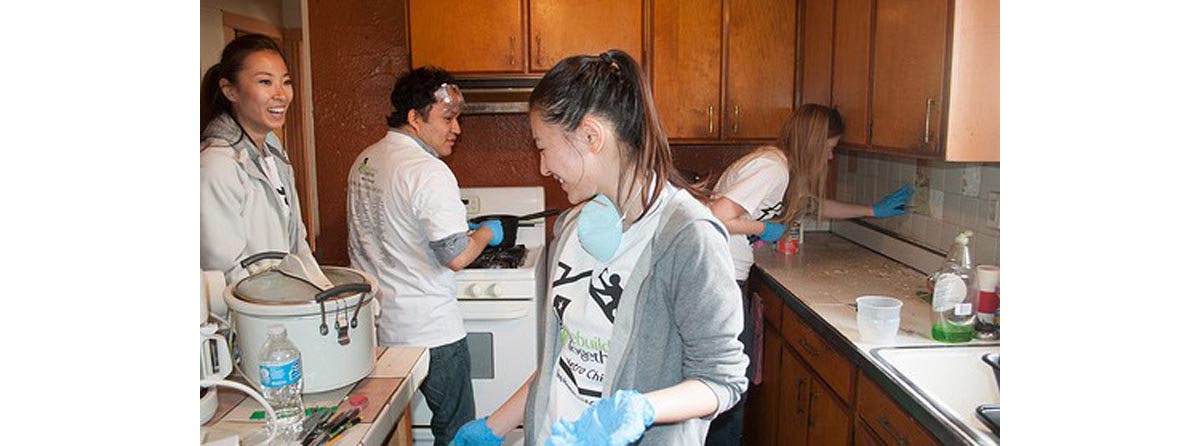June is National Family Month — an excellent time to reflect on your own family, and to find ways to make your bond even stronger. It is all too easy to get caught up in the mundane obligations of day-to-day life, and to forget about what is really important in life, both for parents and children. In June, remember that having fun, getting active, and bonding together have an enormous positive impact on the mental and physical health of all family members.

What can you do to celebrate your family's bond and help it grow even stronger, in June and beyond?
Teach Your Child A New Sporty Skill — Or Learn Something New Yourself
Why not work on mastering, or even beginning, a new sporty skill with children of any age this month? This will give you a bonding experience, and will work on the family's physical health at the same time.
I recently taught my daughter to ride a bike. I will never forget the fun we had during the process, and I think she will remember it forever too. She mastered an important skill, but the experience offered both of us so much more than that. It was an activity for just the two of us, that required complete trust on both sides. We were both so proud when my daughter finally got it right, and the fact that we both did a lot of exercise lifted our moods.
Cycling is a great example of a skill you can teach your child, but there are many others. Swimming, roller skating, ice skating, and even games like soccer (along with basic rules) are wonderful things parents can work on together with their fairly young children.
Families with older kids and teens can learn a new skill or try out a new activity together. Have you ever tried climbing, rafting, paintball, or self-defense classes? You can try any activity that is totally new and appeals to all family members, and be guaranteed to have bundles of fun. You'll also get your heart rate up, burn some calories, and perhaps lose some weight. If you all love your new sport, consider making it a regular activity.
Commit To Eating Dinner As A Family
Enormous amounts of research reveal the many benefits of eating dinner together as a family, as often as possible. Family dinners will give all of you much more than a (hopefully!) health meal on a regular basis, though that alone is extremely valuable.
Most people are aware of some of the benefits of family dinners, but life can get in the way and make you eat your meals at separate times, outside of the home, or while you're checking your emails. You may see an awful lot of changes in your family dynamics if you commit to eating dinner together at least four times a week — and the more you turn dinner into a family experience, the more you will get out of it.
You could start by planning dinner together, once a week. Then, make sure to involve all family members, from the littlest to the oldest, in preparing dinner in some way. Even young kids can help with washing or cutting vegetables, or preparing simple foods like pancakes and pasta. Family members who don't have time to help make dinner because of work, school or sports commitments may well be able to pick ingredients up at the grocery store another time. Make it a team effort!
Dinner-time itself can be a time to talk about your day and to discuss important issues, like current affairs or family vacations. Young children will learn all about healthy eating habits, and increase their vocabulary during dinner-time conversations. Older children actually do better in school if they eat dinner with their family regularly, and they are at a lower risk of becoming obese. Teens are less likely to engage in risky behaviors, and feel a stronger family connection. Family dinners are, in short, crucial for physical as well as mental health.
More Family Health Boosters
Make A Family Chore Chart And Stick To It
Housework is one of those things that can have a huge impact on relationships between family members. Chores can create many arguments, between parents and children but also between partners. Yet, research shows that children are happier when they feel like they are contributing something valuable to the family by doing chores. Shockingly, other studies show that men are happiest with an equal division of household chores.

It may be sad that such studies are even necessary in the 21st Century, and women will understand me wondering out loud when science will feel the urge to see if women would be happier doing more housework, but the message is valuable nonetheless. Families are better off if everyone does chores, in accordance with their abilities.
Making a chore chart is a good way to start a new housework routine for the whole family, and it is especially likely to work if each family member has some say in what they prefer to do and when. At the most basic level, creating a chore chart and sticking to it will give you all a cleaner (read: healthier) and more organized home, that you will be able to enjoy more. Everyone will be able to be proud of their contribution as well as more motivated to keep things looking nice.
If you dig deeper, you will also see other benefits. Children will learn how to physically do chores, a skill that will last a lifetime. If parents don't do all the housework, but divide their portion equally among both partners, all family members will have more time to enjoy those sports activities we talked about earlier, and to do other more interesting things. Cleaning your home in a vigorous and energetic manner does give you a workout all by itself, so make the most of it!
Volunteer To Help Others
Not every person enjoys being part of a close family, unfortunately. National Family Month is the ideal time to remember that fact and to give a small part of your family bond to people who don't have that. There are plenty of things you, your partner and your children can do:
- At care homes for the elderly, many senior citizens are lonely. You can help by cooking for them, cleaning their space, and reading or singing to them. Volunteering at an old peoples' home is a two-way street that you and lonely elderly people can enjoy.
- Children living in poverty need your help. You could raise funds to donate through a garage sale, by cleaning cars with your kids, or hosting a fundraising dinner.
- Foster care is one way in which families can offer a safe home to children in need. Respite care is another possibility that doesn't require the same time commitment.
- All families have one thing in common: they rely on the earth to keep them alive and healthy. See what you can do for the environment. Cleaning up the local park, using less energy in your home, and carpooling with other families are all concrete things you can do to contribute to a healthier earth.
- Photo courtesy of Dane County Regional Airport by Flickr : www.flickr.com/photos/msnairport/8370772323/
- Photo courtesy of SIM Partners by Flickr : www.flickr.com/photos/simpartners/8693034325/
- http://www.usatoday.com/story/news/nation/2013/03/24/family-dinner-adolescent-benefits/2010731/
- abcnews.go.com/blogs/lifestyle/2012/06/doing-chores-makes-many-men-happiest/
- www.psychologytoday.com/blog/growing-friendships/201303/chores-and-children


Your thoughts on this